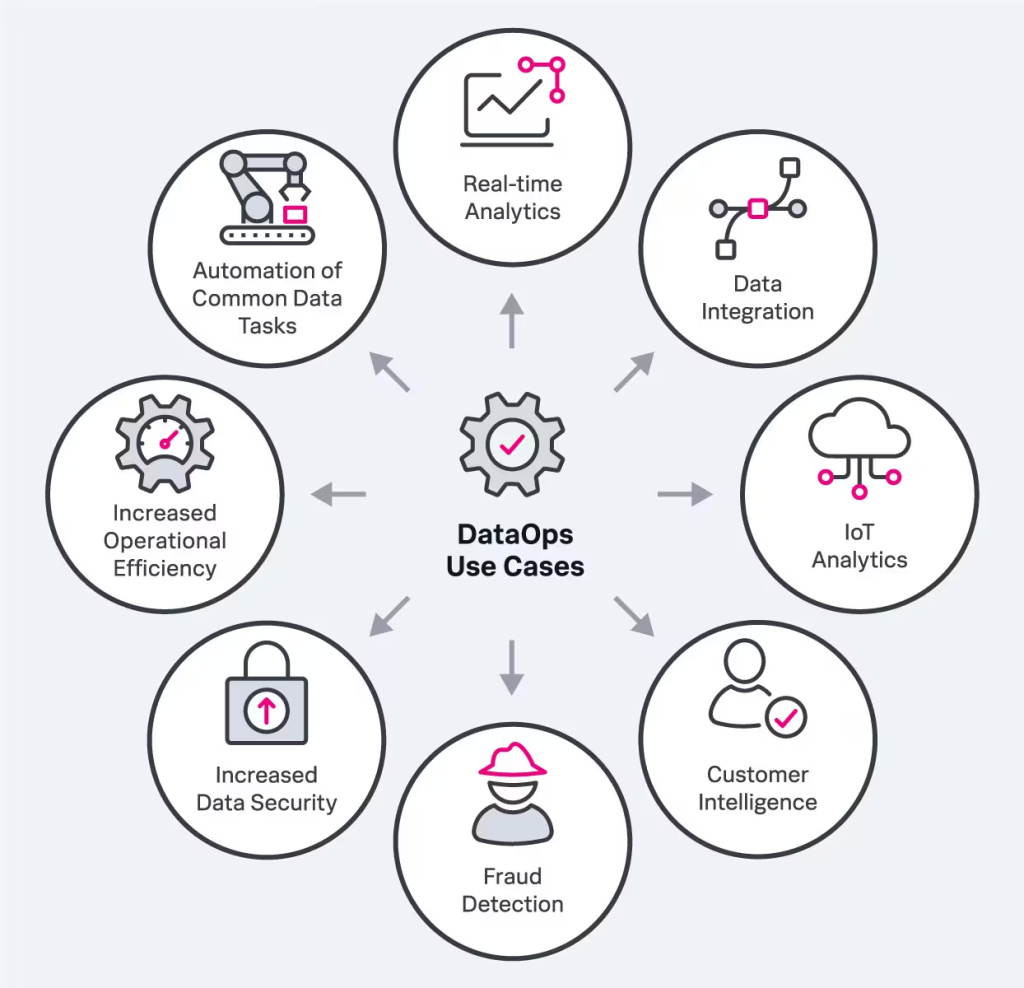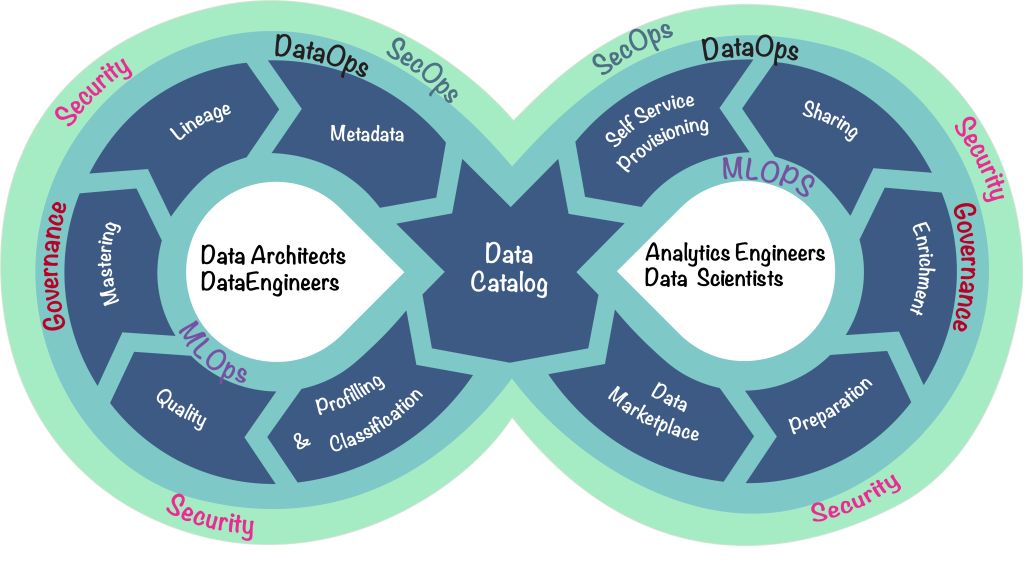
Have you ever wondered how companies manage to extract useful insights from the massive amounts of data they collect? The answer lies in DataOps. DataOps is a methodology that combines Agile, DevOps, and Lean principles to improve the efficiency and quality of data analytics. In this blog post, we will explore the most popular DataOps use cases and how they can benefit businesses.
Use Case #1: Data Integration
Data integration is the process of combining data from different sources into a unified view. This use case is popular among businesses that have multiple systems generating data, such as sales systems, customer relationship management systems, and inventory management systems. By integrating data, businesses can gain a more complete picture of their operations and make better decisions.
A good example of data integration is a retailer that wants to analyze customer behavior across different channels, such as online and in-store. By integrating data from the retailer’s website, mobile app, and physical stores, the retailer can gain insights into how customers interact with their brand and use that information to improve their customer experience.
Use Case #2: Data Quality
Data quality is essential for accurate analysis. Poor data quality can lead to incorrect conclusions and decisions, which can be costly for businesses. DataOps can help businesses improve data quality by implementing data cleansing, data validation, and data enrichment processes.
For example, a financial institution that deals with sensitive customer data must ensure that its data is accurate and up-to-date. By implementing data quality processes, the institution can identify and correct errors in its data, ensuring that it is trustworthy and reliable.
Use Case #3: Data Governance
Data governance is the process of managing the availability, usability, integrity, and security of data used in an organization. This use case is popular among businesses that must comply with regulations, such as the General Data Protection Regulation (GDPR) or the Health Insurance Portability and Accountability Act (HIPAA).
For example, a healthcare provider that deals with patient data must comply with HIPAA regulations to protect patient privacy. By implementing data governance processes, the provider can ensure that its data is secure and accessible only to authorized personnel.
Use Case #4: Data Analytics
Data analytics is the process of analyzing data to extract insights and make informed decisions. This use case is popular among businesses that want to gain a competitive advantage by using data to drive innovation and growth.
For example, a marketing agency that wants to improve its clients’ advertising campaigns can use data analytics to identify customer preferences and behavior. By analyzing data from social media, search engines, and other sources, the agency can develop targeted campaigns that resonate with its clients’ target audience.
Use Case #5: Data Visualization
Data visualization is the process of presenting data in a visual format, such as charts, graphs, and maps. This use case is popular among businesses that want to communicate complex data in a simple and understandable way.
For example, a logistics company that wants to optimize its supply chain can use data visualization to identify bottlenecks and inefficiencies. By presenting data in a visual format, the company can easily see where improvements can be made and take action to improve its operations.

Use Case #6: Data Security
Data security is the process of protecting data from unauthorized access, use, disclosure, disruption, modification, or destruction. This use case is critical for businesses that deal with sensitive data, such as financial information, personal information, and trade secrets.
For example, a government agency that deals with classified information must implement strict data security measures to prevent data breaches. By implementing data security processes, the agency can ensure that its data is protected from unauthorized access and use.
Conclusion
In conclusion, DataOps is a powerful methodology that can help businesses improve the efficiency and quality of their data analytics. By implementing popular DataOps use cases, businesses can gain a competitive advantage by using data to drive innovation and growth. Whether it’s data integration, data quality, data governance, data analytics, data visualization, or data security, there’s a DataOps use case for every business. So, what are you waiting for? Start implementing DataOps today and take your data analytics to the next level!